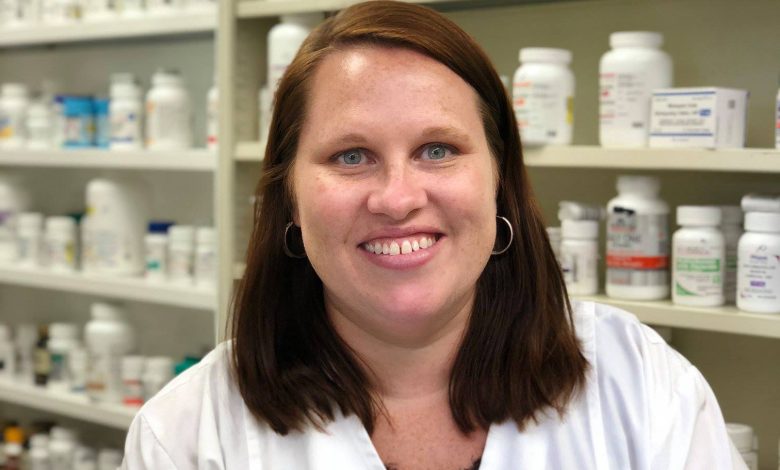15 Types Of Pharmacists You Should Know

Who is a pharmacist?
A pharmacist is a healthcare professional who specializes in the preparation, dispensing, and safe use of medications. They play a critical role in the healthcare system by working with patients, physicians, and other healthcare providers to ensure the appropriate use of medications.
Pharmacists are responsible for reviewing prescription orders, checking for drug interactions, counseling patients on how to use medications safely and effectively, and monitoring patient outcomes. They also provide information on over-the-counter medications, herbal supplements, and other healthcare products.
In addition to dispensing medications, pharmacists also participate in drug development, clinical research, and public health initiatives. They work in a variety of settings, including hospitals, community pharmacies, clinics, and research laboratories.
Pharmacists are required to complete a Bachelor’s degree or Doctor of Pharmacy (Pharm.D.) degree from an accredited pharmacy program, pass a licensing exam, and maintain ongoing continuing education to stay up-to-date with the latest advances in drug therapy and healthcare practice.
History Of Pharmacy Practice
The history of pharmacy practice dates back to ancient civilizations such as Egypt, Mesopotamia, and China. In these societies, pharmacists were often priests or healers who prepared and dispensed medications from natural sources such as herbs and minerals.
During the Middle Ages, pharmacies began to emerge in Europe, with the first recorded pharmacy opening in Baghdad in the 8th century. Pharmacists during this time period were known as apothecaries, and their primary role was to prepare and dispense medications.
In the 19th century, advances in chemistry and technology revolutionized pharmacy practice. The development of new drugs and the establishment of pharmaceutical companies led to the production of standardized medications, and pharmacists became more involved in drug development and testing.
In the 20th century, pharmacy practice continued to evolve, with the introduction of new laws and regulations governing the practice of pharmacy. The role of pharmacists expanded beyond the preparation and dispensing of medications to include patient counseling, drug therapy management, and medication safety.
Today, pharmacy practice continues to be an essential component of modern healthcare. Pharmacists work in a variety of settings, including hospitals, community pharmacies, and specialty clinics, to provide patient-centered care and ensure the safe and effective use of medications.
Types Of Pharmacists
Here are the 15 types of pharmacists we have:
1. Community Pharmacist: Community pharmacists work in retail or independent pharmacies and are responsible for dispensing medications and providing medication-related care to patients in the community. They may also offer advice on over-the-counter medications, health supplements, and medical equipment. Community pharmacists often work closely with patients to ensure they understand how to take their medication properly and manage any side effects.
2. Hospital Pharmacist: Hospital pharmacists work in hospitals or other healthcare settings and are responsible for dispensing and managing medications for inpatients and outpatients. They work closely with physicians, nurses, and other healthcare professionals to ensure that patients receive the correct medications and dosages. Hospital pharmacists may also participate in rounds with physicians to review patients’ medication regimens and provide recommendations for optimizing drug therapy.
3. Clinical Pharmacist: Clinical pharmacists work with healthcare providers to manage patients’ medication therapy and provide medication therapy management services. They may work in hospitals, clinics, or other healthcare settings, and are responsible for conducting medication reviews, identifying and resolving medication-related problems, and educating patients on how to manage their medications effectively.
4. Compounding Pharmacist: Compounding pharmacists prepare customized medications that are not available commercially, such as medications in different strengths or dosage forms. They may work in retail pharmacies, hospitals, or specialized compounding facilities, and are responsible for formulating medications to meet individual patient needs.
5. Nuclear Pharmacist: Nuclear pharmacists specialize in the preparation and dispensing of radioactive medications for diagnostic and therapeutic purposes. They may work in hospitals, nuclear medicine clinics, or research facilities, and are responsible for ensuring the safe and effective use of radioactive materials.
6. Ambulatory Care Pharmacist: Ambulatory care pharmacists work in outpatient clinics or physician offices to provide medication therapy management services to patients with chronic conditions. They are responsible for managing patients’ medications, monitoring drug therapy, and providing education to help patients manage their conditions effectively.
7. Geriatric Pharmacist: Geriatric pharmacists specialize in the care of older adults and manage medications for patients with multiple chronic conditions and complex medication regimens. They work closely with physicians and other healthcare professionals to optimize drug therapy and minimize adverse drug reactions in older adults.
8. Industrial Pharmacist: Industrial pharmacists work in the pharmaceutical industry and are involved in drug development, testing, manufacturing, and quality control. They may work in research and development, manufacturing, regulatory affairs, or quality assurance, and are responsible for ensuring the safety and efficacy of pharmaceutical products.
9. Oncology Pharmacist: Oncology pharmacists specialize in the care of cancer patients and manage medications for chemotherapy and other cancer treatments. They work closely with oncologists, nurses, and other healthcare professionals to optimize drug therapy and minimize adverse drug reactions in cancer patients.
10. Research Pharmacist: Research pharmacists conduct research in the field of pharmacy and may work in academic institutions, government agencies, or pharmaceutical companies. They are responsible for designing and conducting clinical trials, analyzing data, and publishing research findings to advance the field of pharmacy.
11. Psychiatric Pharmacist: Psychiatric pharmacists specialize in the care of patients with mental health disorders and manage medications for conditions such as depression, anxiety, and schizophrenia. They work closely with psychiatrists, psychologists, and other mental health professionals to optimize drug therapy and minimize adverse drug reactions.
12. Pediatric Pharmacist: Pediatric pharmacists specialize in the care of children and manage medications for conditions such as asthma, diabetes, and infections. They work closely with pediatricians, nurses, and other healthcare professionals to optimize drug therapy and minimize adverse drug reactions in children.
13. Regulatory Pharmacist: Regulatory pharmacists work in the pharmaceutical industry, government agencies, or other organizations involved in drug regulation. They are responsible for ensuring that drugs meet regulatory standards for safety, efficacy, and quality.
14. Academia Pharmacist: Academia pharmacists work in colleges and universities, teaching pharmacy students and conducting research in the field of pharmacy. They may also provide continuing education to practicing pharmacists and work with other healthcare professionals to improve patient care.
15. Veterinary Pharmacist: Veterinary pharmacists specialize in the care of animals and manage medications for conditions such as infections, pain, and chronic diseases. They work closely with veterinarians and other animal healthcare professionals to optimize drug therapy and minimize adverse drug reactions in animals.
Pharmacists play a vital role in healthcare, working in a variety of settings and specializing in different areas of pharmacy practice to ensure the safe and effective use of medications.





